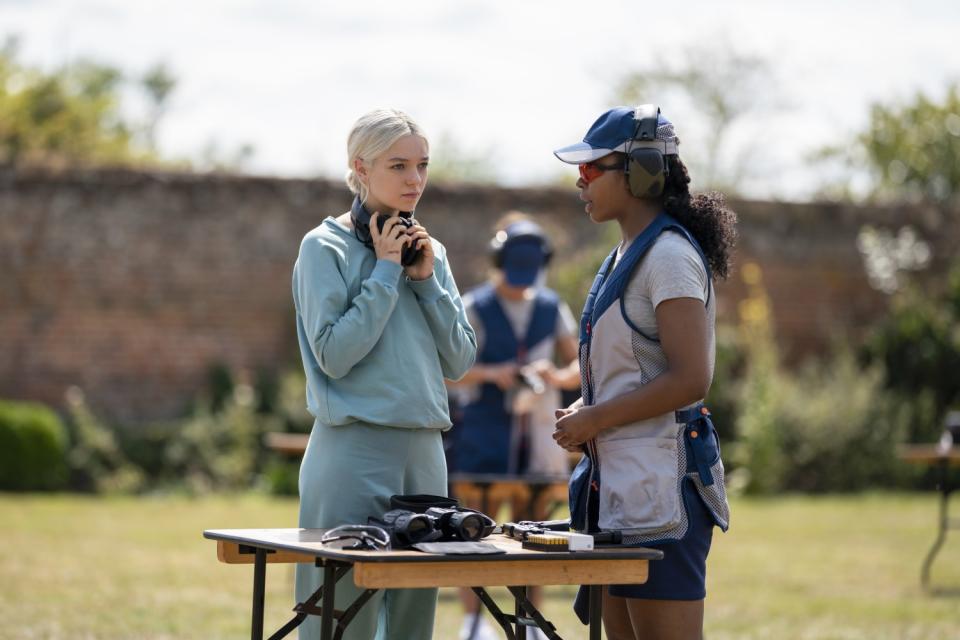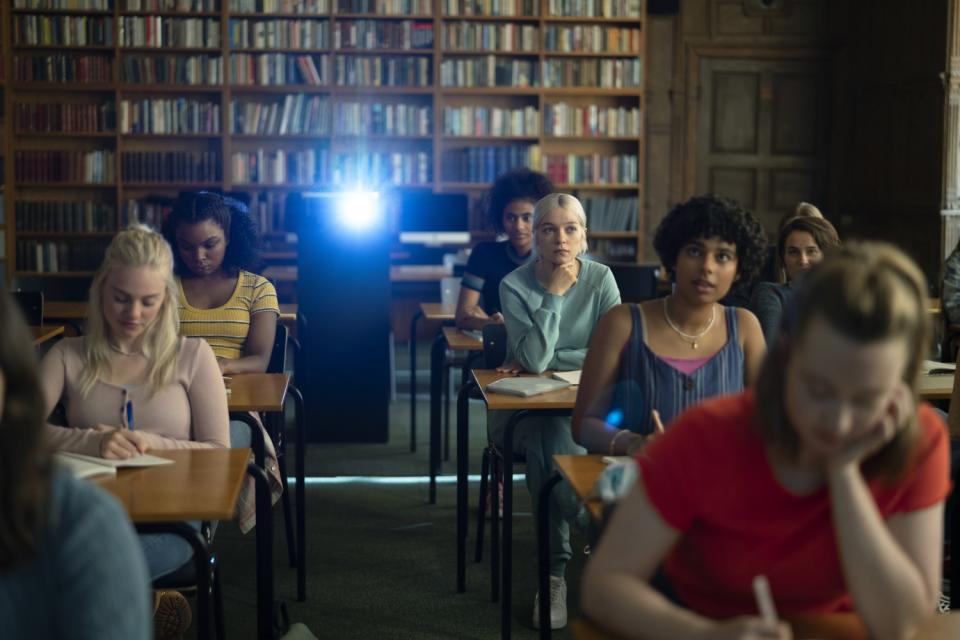In 'Hanna,' even the assassins have online personas. Let us explain

Sheltering at home has forced us to rely more than ever on the virtual sphere to meet, stay in touch and develop relationships. But the second season of "Hanna" takes the idea of interpersonal online interactions to a whole new level.
The second season of the Amazon Prime series premiered earlier this month, and a third was announced Monday morning. The show follows Hanna (Esmé Creed-Miles), who escapes an organization called UTRAX that grooms teenage girls to be deadly assassins. Their training is turned up a notch by introducing an isolated campus called the Meadows. There, the trainees are forced to adopt new identities to better help them assimilate into normal society while on assignment.
On the surface, "Hanna's" premise is sinister but not entirely unheard of: From Natalie Portman in "Léon: The Professional" and Jennifer Lawrence in "Red Sparrow" to Marvel's Natasha Romanoff/the Black Widow (played by Scarlett Johansson) and the film version of "Hanna," girls and young women being trained to kill is a fairly common pop culture trope. But series creator and executive producer David Farr wants to show viewers the roots of the process.
"What we explore in Season 2 involves the creation of identity," says Farr. "It brings up some quite potent complications and potent ideas about how our identity is presented to people around the world, how it is created and curated online."

Though it's now widely accepted that one's online identity is not a mirror image of the self, that people "craft" their online personas, the roles are flipped in "Hanna." Characters are given new families, boyfriends and lives. Their rooms are stocked with images of fun times that never actually happened. They have dossiers on their new families, even significant others. But to make things more "real," they communicate with their new connections online.
Yasmin Monet Prince, who plays Hanna's friend Clara (she's assigned the pseudonym Clemency), is one of the few who steadfastly remains true to herself even while playing along and attempting to find a "family." Prince, who was reached in London via email, has her own ideas about how the virtual world can shape reality.
"It's like everyone is in a kind of order — this is how you post, this is what you should say, this is how you should behave in your ‘stories.’ But as soon as we step out of line, there is that risk of judgment and consequences that may feel uncomfortable at first and make the journey harder."
Though the process of "trying on different personas" can be a healthy part of self-development, according to a 2018 article in Psychology Today, Farr and company wanted to go into detail about how an organization such as UTRAX might exploit such virtual attachments. With the subject matter and timing of the show's release, Farr understands that the times "lend a quality [to the show] that was perhaps unexpected.
"What I was intuitively picking up on much more was the younger generation's increased reliance on the virtual world to give them an identity and the double nature of that."
Through the characters' correspondences, they check in with Mom, text their boyfriends, even experience the death of a loved one. Some of the girls take to their new lives more enthusiastically than others: The viewer knows that Clara hasn't fully transformed, though she's still going along with the ploy.

"When you don’t know who you really are, there is the potential to become very lost, and this can lead to depression. The virtual world can shape our identity by telling us what the easiest route is with respect to how to live our lives," said Prince. "Clara knows it's not real, but she’s looking for a family … a home. And she’s starting to find that at the Meadows."
As Clara and the others take on these new personas, viewers who have seen some of these characters from Season 1 will notice that they've changed.
"It even surprised us how convincing they were — even though we know that everything that they are, every part if them, was created by the organization," said Farr.
"It gains a reality for them, which strangely gains a reality for us. That's partly very true of so much of our lives that it's become strangely metaphorical for the way in which we live now."

